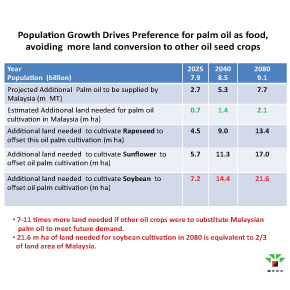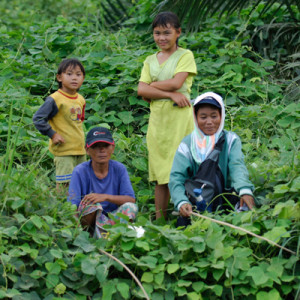My Response to Irresponsible Allegations About Industry Practices Appeared in The STAR Newspaper
IN recent weeks, several environmental NGOs have escalated their attacks on the Malaysian palm oil industry. Their criticisms contained falsehoods and irresponsible allegations about the industry’s business practices.
Perhaps it is a sign of desperation on their part. As the legal, social, and philanthropic efforts to protect species across South-east Asia increase – and as the welfare of wildlife improves in Malaysia – these NGOs must misrepresent the truth in order to attract donations from poorly informed supporters in wealthy Western nations.
The environmental group Sahabat Alam Malaysia accused the palm oil industry of “genocide” against orang utans. Another group claimed the industry engages in indiscriminate clearing of protected land. And another demanded the industry atone for its alleged sins by adopting a so-called “No Kill Policy” to protect wildlife.
The only way organisations can make such claims, or tender such demands, is if they have no genuine knowledge of how the palm oil industry operates.
So, let’s clear the air. For starters, it is worth stressing that the palm oil industry adheres faithfully to all national wildlife and land stewardship laws in Malaysia, and everywhere else it conducts business.
The reasons for this fealty to national law are both moral and practical. It is wrong to violate just and legitimate legislation. The protection of Malaysia’s rich natural heritage is strongly supported by the Malaysian palm oil sector.
What’s more, illegality is simply foolish business practice. No large industry can, or should, survive if it flouts the will of a nation’s people.
The Malaysian palm oil industry enthusiastically supports the will of the Malaysian people and the protection of wildlife across South-east Asia.
In addition to ignore the industry’s proven record of respect for law, the critics ignore many additional facts that undermine their claims.
Consider the following fact often overlooked by the industry’s accusers – for every hectare of land developed for palm oil production in Malaysia, four hectares are preserved as permanent forest.
This protection extends to orang utan habitats in Sabah and Sarawak, the two original states in Malaysia with orang utan populations. In both states more than half of the orang utan lands are preserved under permanent forest.
The palm oil industry comprised thousands of employees who love their country and cherish their wildlife as much as any professional environmental activist. This explains in part why the industry has been a leader in wildlife conservation and preservation efforts.
For example, the Malaysian Palm Oil Council Wildlife Conservation Fund has developed an expansive suite of programmes designed to educate the public on Malaysia’s wildlife heritage and to protect Malaysian species and habitat. The Fund marshals tens of millions of ringgit to conserve Malaysia’s wild treasures.
And, in recent years, other members of Malaysian society have made important strides in conserving and protecting the orang utan in Malaysia. Malacca Zoo has particularly demonstrated important leadership in this regard.
In a recent statement, Malaysia’s Natural Resources and Environment Ministry called the claims on the treatment of the orang utan levelled by the environmental NGOs “baseless accusations”.
The Ministry stated: “Malacca Zoo has been releasing its orang utan into the exhibit area on a rotational basis to prevent conflicts between the groups. Hence, all the orang utan are given the opportunity to roam freely in the exhibit area.”
Perhaps most galling about the rhetorical attacks on palm oil is that the critics ignore the important role the industry plays in Malaysia’s – and the region’s – economy.
The palm oil industry works every day to meet the challenge of feeding a growing and hungry world. Its employees rightly view this as a significant humanitarian effort. In the process, the industry creates badly needed jobs and provides incomes for thousands of Malaysian and Indonesian men and women and their families.
The palm oil industry has long appreciated it has a special role in the region. Any person of goodwill who loves his country will want a growing economy to coexist with prudent environmental protection.
Despite the scurrilous barbs levelled against it, the industry has supported these twin goals throughout its history and will continue to do so.










Tan Sri, why have you gone so quiet now that the Tenggarong district court found four employees of MKH Berhad, including one Malaysian guilty for slaying at least 20 orangutans and other primates? They were jailed and fined, while another Malaysian estate manager was reported to Interpol by the Indonesian police. And the Malaysian Embassy in Jakarta for that matter.
You state that “it is wrong to violate just and legitimate legislation”. Hahaha, and it must be you who determines what is “just” legislation.
May you live long enough to face the music.
Former president of WWF shot tigers. Advanced countries killed humans by bombing them They didn’t get punished because they made their own laws. Investors in Indonesia broke the law and rightly so they get punished. It shows laws are enforced for wrong doings. What is wrong is when they get away with murder by bombing such as in Irag when there is no nuclear site as alleged.
douchebag